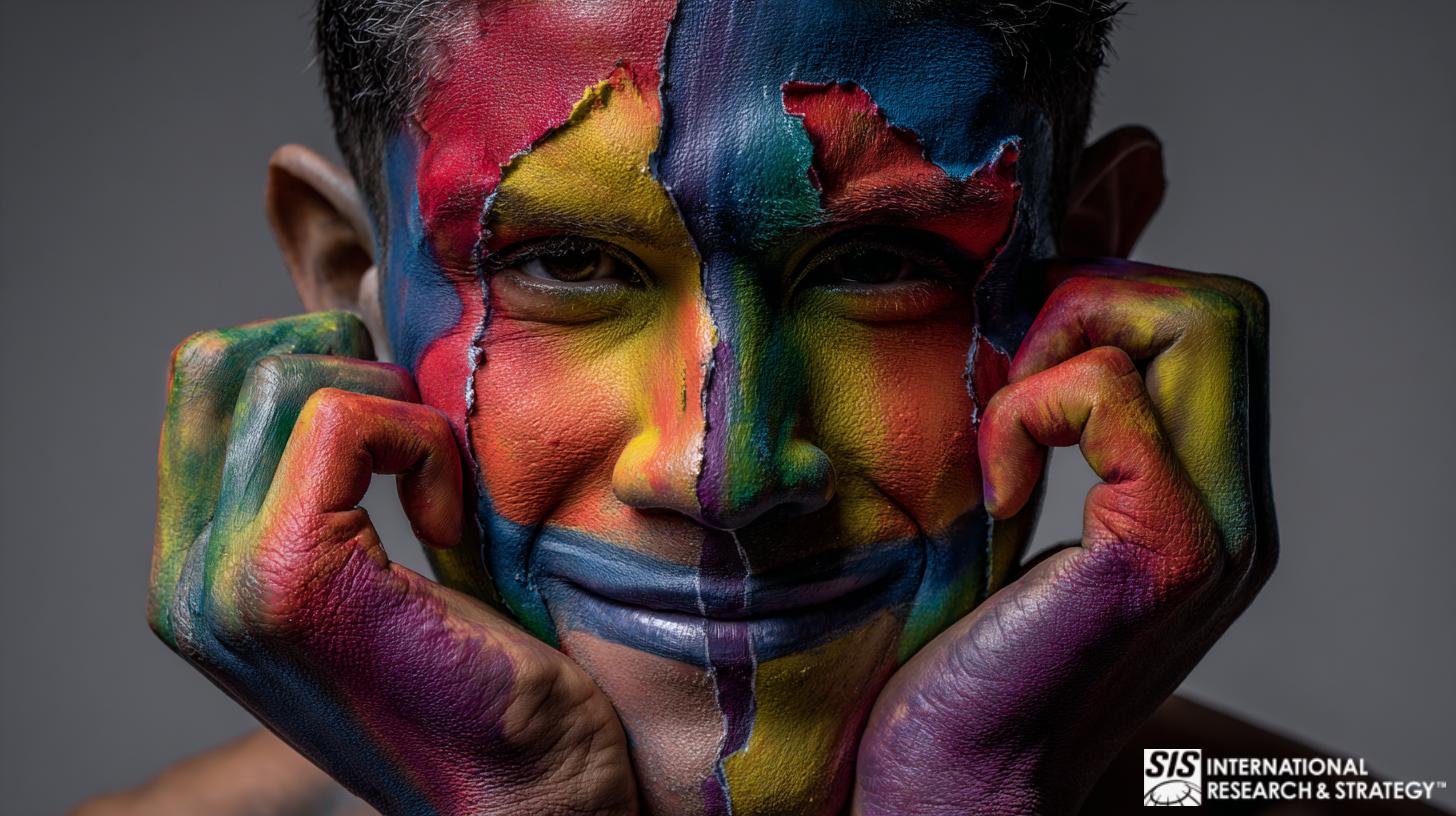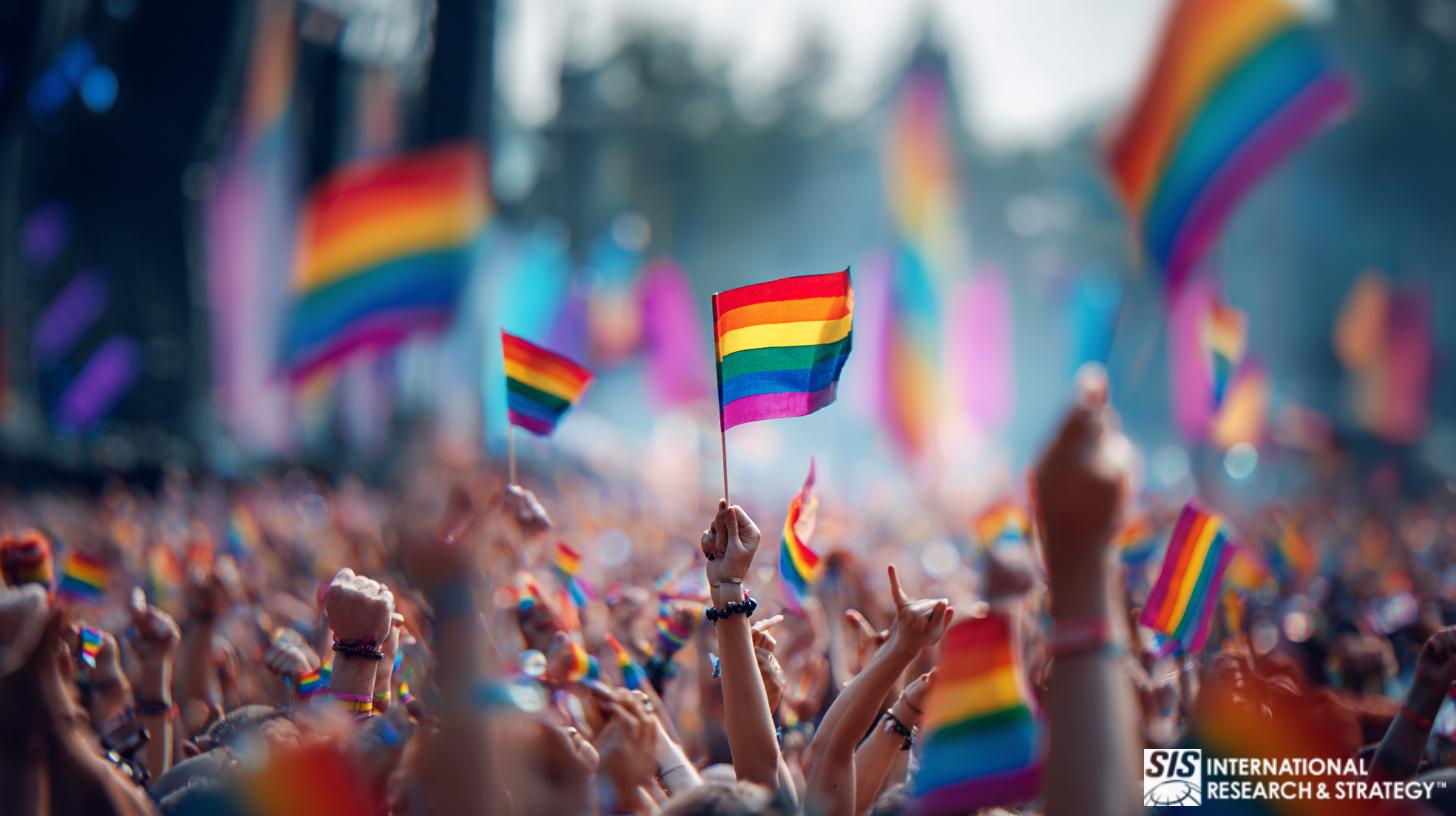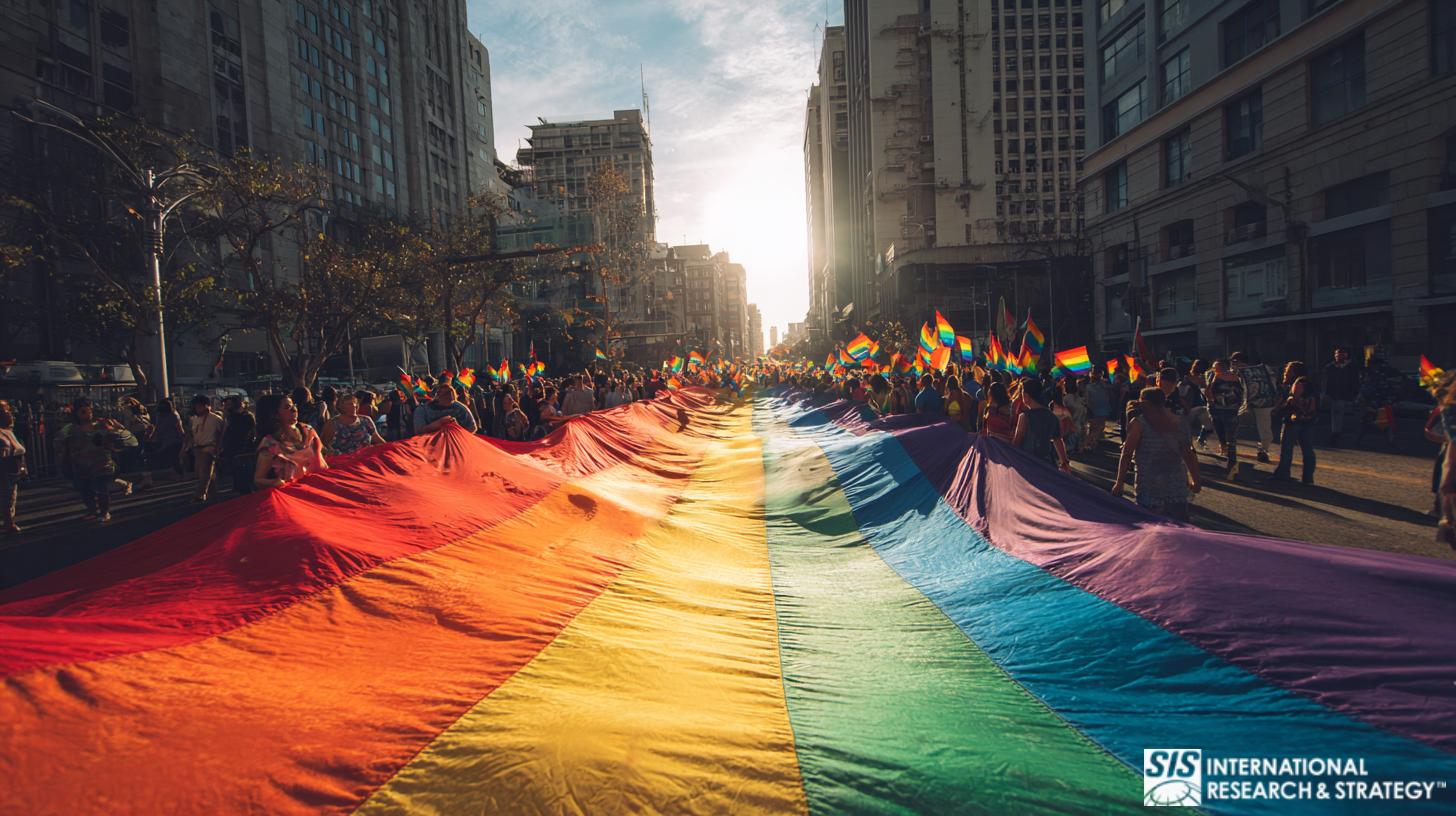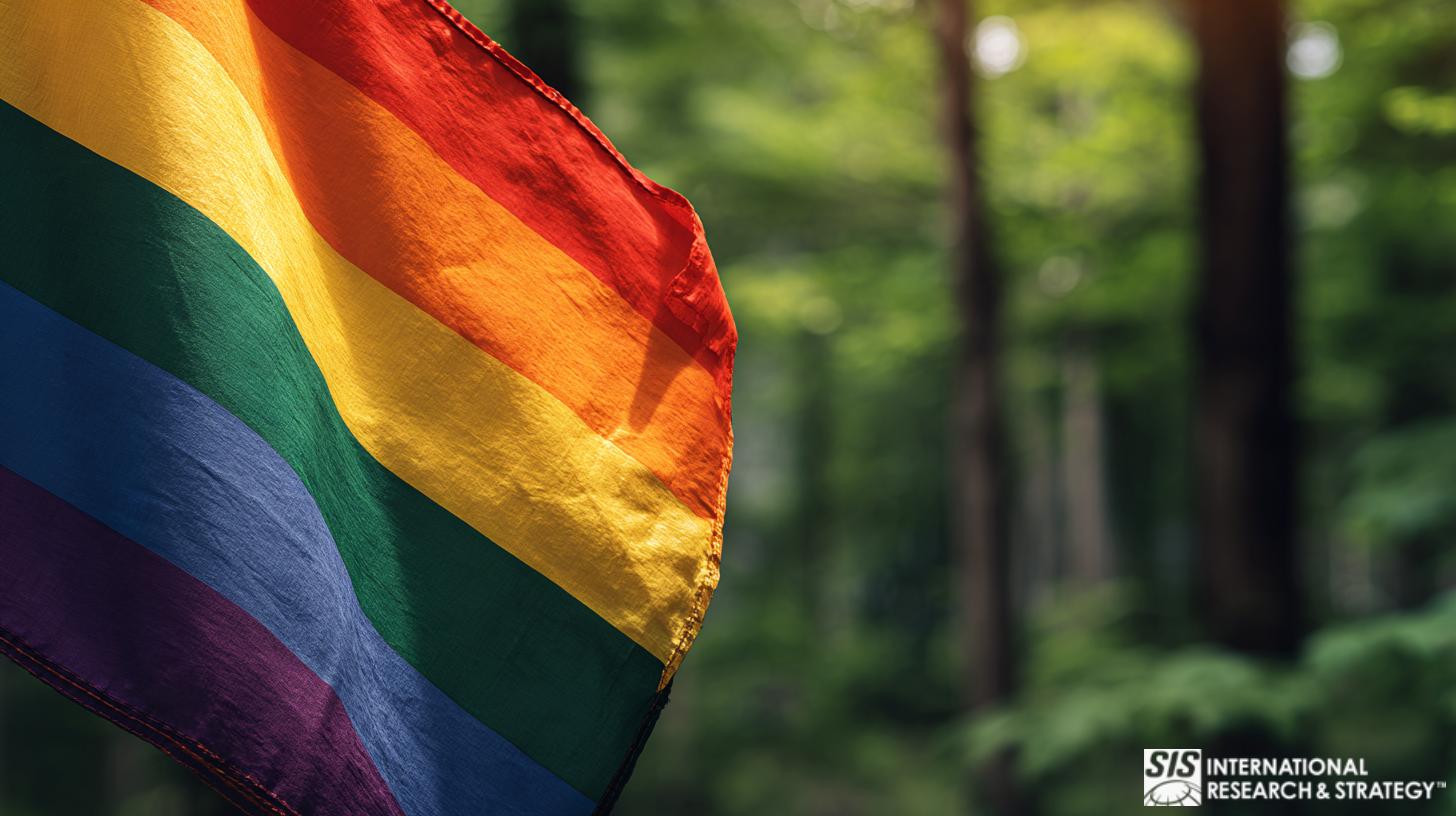LGBT Market Research

Table of Contents
The LGBT market is a multi-billion dollar market that is growing in many countries around the world.
The market is characterized by generally high disposable income and growth in key sectors. On some products, Gays and Lesbians spend more on travel, beauty products, fashion, and entertainment. Studies also show that gays were more likely to consume advertising on mobile phones, and were more likely to research products on their mobile phones while watching TV. Gay-friendly advertising can be influential in purchasing and brand loyalty. The following are some of the fastest-growing sectors and new opportunities in today’s LGBT consumer market.
Understanding LGBTQ Market Research
LGBTQ market research is not merely about data collection. It’s about understanding the rich experiences, preferences, and challenges faced by the LGBTQ community. It involves gathering and analyzing data related to the habits, interests, and needs of the lesbian, gay, bisexual, transgender, and queer population.
… And this unique segment of the market possesses unique consumer behaviors and preferences that can greatly influence product and service offerings.
The complexity of LGBTQ market research lies in recognizing the diverse experiences within the community. For example, the preferences of a transgender individual might differ from a gay or lesbian individual. It’s about more than just understanding sexual orientation; it’s about grasping the cultural, social, and economic dynamics that shape the LGBTQ community’s consumer behavior.
Why Is It LGBTQ Market Research So Important?

From an economic perspective, the LGBTQ community represents a substantial market segment with significant purchasing power. Ignoring or misunderstanding this market can mean missed opportunities for businesses.
But, there’s an ethical component. By committing to LGBTQ market research, companies signal that they value and respect the diversity of their consumer base. Such a stance can foster brand loyalty among LGBTQ consumers and their allies. It’s more than just a business strategy; it’s about inclusivity and representation.
Moreover, it has several benefits for businesses, including:
• Targeted Marketing Strategies: By understanding the unique needs, preferences, and lifestyles of the LGBTQ community, businesses can tailor their marketing strategies more effectively with the right insights into what resonates with this community.
• Increased Brand Loyalty: When businesses show that they genuinely understand and care about the LGBTQ community by making informed decisions, they foster trust. This trust often translates into increased brand loyalty and advocacy among LGBTQ consumers and their allies.
• Product Development Insights: LGBTQ market research can reveal gaps in the market where the needs of LGBTQ consumers are not being met. Businesses can capitalize on these gaps by developing new products or refining existing ones to cater to this audience.
• Reputation Enhancement: In today’s world, consumers, especially younger generations, are keenly aware of social issues and look to support brands that reflect their values. Thus, companies can improve their overall reputation and appeal to a broader audience.
• Risk Mitigation: Companies that do not engage in LGBTQ market research run the risk of launching campaigns or products that may inadvertently offend or alienate the LGBTQ community. By investing in research, companies can avoid these pitfalls and ensure that their initiatives are both respectful and inclusive.
• Economic Benefits: As mentioned earlier, the LGBTQ community holds significant purchasing power. Businesses that successfully cater to this market are poised to see increased revenue and market share.
• Exploring Untapped Markets: While some industries have embraced the LGBTQ community, others have yet to fully recognize the potential. LGBTQ market studies can spotlight sectors where the needs and preferences of the LGBTQ community are underserved, offering fresh avenues for businesses to explore.
• Cultural and Global Expansion: As businesses look to expand globally, understanding the LGBTQ community’s nuances in different cultures and regions is crucial. Research can provide insights into how LGBTQ issues and identities are perceived and expressed in different parts of the world, guiding businesses in their international endeavors.
Travel & Tourism Opportunities
Research shows that LGBT consumers spend significantly more on average than other segments on leisure travel. Festivals and Pride parades and summer hot spots like Fire Island, South Beach, Provincetown, and Palm Springs are important travel destinations. Gay-themed cruises, destination weddings and specialty tours are rising in popularity. Changes in legislation, safety concerns and the rise of digital media all influence the selection of travel destinations.
Countries and cities are enthusiastically marketing to LGBT consumers. Visit Britain has a global travel promotion campaign with the hashtag #loveisgreat and sponsorship of Pride festivals in 12 cities. Countries like Israel and Taiwan and individual cities like Austin actively promote their gay-friendly destinations.
Hotels have often been very gay-friendly. Major global hotel chains both employ many gay people and have loyalty programs and special room packages tailored to LGBT consumers. Some airlines have painted their liveries and social media pages with colorful flags for Pride month.
Fitness, Wellness, and Healthcare Research
Fitness and gym brands have seen opportunities and have launched campaigns. Healthcare and pharmaceutical brands have sexual health products and campaigns targeted to LGBT consumers. SIS has conducted focus groups for LGBT consumers in NYC on messaging campaigns for pharmaceuticals and wellness products.
Film, Movies, Music, Arts & Theater
Gay film has been on the rise at major film festivals. With the rise of streaming services like Netflix, Amazon and iTunes, gay-themed movies can more easily be distributed than by traditional DVD and retail environments.
Providing high-quality content remains a challenge, particularly in a highly saturated digital media environment. Focus Groups can help filmmakers understand how viewers perceive content. Surveys can provide rapid data to understand how consumers engage with content. Market Research helps film companies understand marketing opportunities and challenges in marketing content to audiences.
Event Marketing

Pride festivals happen throughout the year in major urban areas worldwide. Major brands advertise with floats, giveaways and entertainment.
The NYC Pride Parade, one of the world’s largest Pride events, passes a few steps away from our New York City headquarters. In addition to Pride, many cities worldwide have Gay themed festivals and events as part of Destination Marketing campaigns. For example, Aspen has Gay Ski Week. Sydney has Mardi Gras. Miami and Palm Springs have Winter Parties. Orlando has One Magical Weekend.
NYC Fashion Week also features gay-friendly themes and hashtag marketing campaigns. Our research team conducts Street Interviews, Face-to-Face Surveys and Intercepts.
Food and Beverage
Alcohol companies such as vodka products have increasingly built campaigns, products and flavors targeted to LGBT consumers. New Fast Casual food restaurant chains have floats in the parade. Chocolatiers and gelato companies now promote products to LGBT segments. High-end supermarkets also sponsor Pride festivals in major cities.
Influencer Marketing
Social Media has opened an extraordinary market on websites on Facebook, Twitter, YouTube and Instagram. Numerous LGBT influencers and stars now exist and promote products and content for brands. SIS has conducted numerous studies with Fashion, Cosmetics, and LGBT influencers, connecting brands with influential people in their communities. Many retailers have found that sponsoring content can have a positive impact on brands and sales.
Digital Products and Apps
SIS has conducted research for companies focused on the Sharing Economy. These include Ridesharing and Home Sharing. Recent research shows that the brands LGBT consumers are most fond of tend to be digital brands such as streaming media websites and e-commerce websites.
In addition, SIS has conducted usability research and Focus Groups for dating app companies. Research shows that LGBT consumers spend more time than other segments on Dating Apps. Qualitative insights and quantitative data can be helpful in understanding how consumers interact with your products and services.
Political and Opinion Research

Opinion research is helpful given changes in attitudes. With changes in legislation, opinion research can identify nuances on hot-button issues. Issues such as Homophobia, Gay Marriage, Same Sex Rights, Transgender Rights and Equality have been key issues in opinion research for years. SIS provides Focus Groups, surveys and polls across the US, UK, Canada, Europe, and worldwide.
Research Considerations
LGBTQ incorporates many segments. It is important to be sensitive to different perspectives, attitudes, behaviors and opinions. There are differences in behavior between those who self-identify and people who are potentially closeted. Furthermore, there can be fluidity in sexuality and a spectrum of beliefs and behavior. Researchers can work with clients to understand their objectives, ask appropriate questions, and plan projects to achieve specific objectives.
LGBTQ Market Research Challenges
While the potential of LGBTQ market research is enormous, businesses must recognize its challenges and limitations. Addressing and understanding these challenges can ensure more effective and respectful research methodologies. Here are some challenges associated with this market research:
• Representative Sampling: Ensuring that the sample of respondents truly represents the diversity within the LGBTQ community is a challenge. Often, LGBTQ market research can unintentionally lean towards certain subgroups, neglecting others, which might lead to skewed insights.
• Sensitive Topics: The LGBTQ community has a history of discrimination and marginalization. As a result, certain questions or topics might be perceived as intrusive or insensitive.
• Cultural Variances: The LGBTQ experience isn’t monolithic; it varies significantly across cultures, countries, and regions. LGBTQ market research must be context-specific and avoid making blanket assumptions that overlook these cultural nuances.
• Avoiding Stereotypes: There’s a risk that findings from LGBTQ market research might inadvertently perpetuate stereotypes. Researchers and businesses must be cautious to interpret data in a way that respects individuality and avoids generalizations.
• Data Privacy Concerns: Given the potential risks associated with being identified as LGBTQ in certain regions or societies, ensuring anonymity and data privacy is paramount.
• Engaging the Hard-to-Reach: Some segments of the LGBTQ community, such as older individuals or those in more conservative regions, might be harder to engage in research. LGBTQ market research strategies need to account for this, finding ways to reach and include these voices.
Where We Work

SIS is present in major global cities and gay hotspots including New York, West Hollywood / Los Angeles, London, Paris, Berlin, San Francisco, Miami, Toronto, and Rio de Janeiro. Our headquarters and largest Focus Group facility is in the Flatiron district of New York City, a few minutes walk from Chelsea, a historic gay-friendly neighborhood. Furthermore, our global reach and market coverage in High Growth Emerging Markets gives access to thousands of LGBT consumers in today’s fast-changing global economy.
What We Do
We provide Focus Groups, Consumer Interviews, Surveys, Data Collection, Co-Creation, Ethnography, Market Assessments, New Market Entry, and Digital Marketing campaigns.
Our Facility Location in New York
11 E 22nd Street, Floor 2, New York, NY 10010 T: +1(212) 505-6805
About SIS International
SIS International offers Quantitative, Qualitative, and Strategy Research. We provide data, tools, strategies, reports, and insights for decision-making. We also conduct interviews, surveys, focus groups, and other Market Research methods and approaches. Contact us for your next Market Research project.

